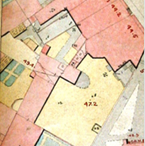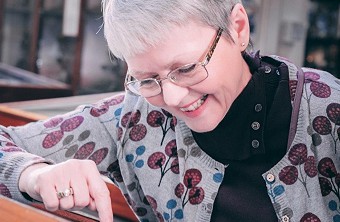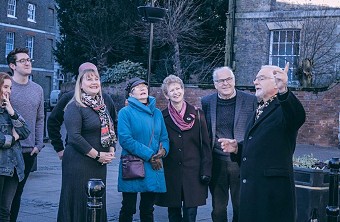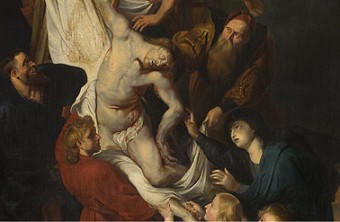24 February 1807 - Thomas Clarkson to Jonathan Peckover, Wisbech.
Transcription:
Dear friend
Jonathan Peckover1.
Feb. 24 1807
I write to inform you that our efforts were
blessed by Providence last Night in the Promotion of this great
Cause of the Abolition of the Slave Trade. I want
Words to express the Joy I feel on the Occasion. In favour
of the motion there were 283 - against it 16.2 I shall
attend a Committee to-day to deliberate upon some
Plan for securing our Victory, when I shall leave
London with a Heart full of Gratitude to the Parent
of all mercies, that he has been pleased thus to render
a Portion of my Life useful to my oppressed
Fellow Creatures.
Yours truly | T – Clarkson
Jonathan Peckover
Wisbech
Cambridgeshire
Letter from Thos Clarkson
and his [author?] [written in a different hand]
*A letter of the exactly the same content, but addressed to John Wadkin, is currently held at St John's College Library, Cambridge, Record Office Location Number: Folder 2 Doc 24, Description: Letter from Thomas Clarkson, London to John Wadkin (Manchester) 24 February 1807.
1 Jonathan Peckover, (1835 – 1822) moved to Wisbech from Fakenham, Norfolk, in 1777. He initially ran a groceries business and diversified into banking. ‘Peckover’s Bank’ became the ‘Wisbech and Lincolnshire Bank’ when Jonathan entered into partnership with established Quaker bankers, Gurneys & Co. of Norwich in 1782. He had a respected role in the town and was known for his philanthropy and campaigning for anti-slavery and improvements in education.
2 On 25 March 1807, the Abolition of the Slave Trade Act was passed in Parliament. It abolished the slave trade in the British colonies and made it illegal to carry enslaved people in British ships.























































